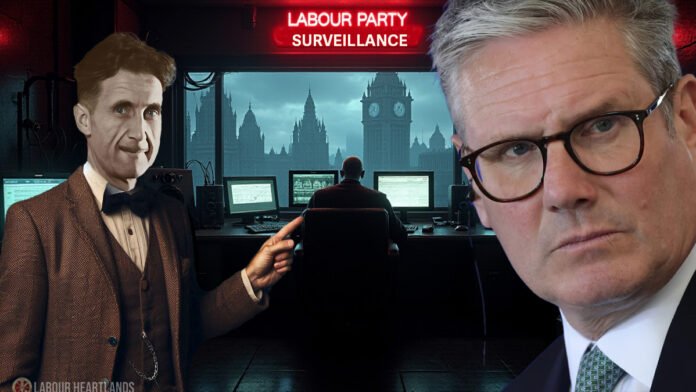Britain’s Thought Police Are Here and They’re Coming for Dissent, Not Criminals
Just when you thought this government couldn’t sink any lower, it drafts in an elite squad of detectives, not to tackle knife crime or protect vulnerable women, but to trawl your Facebook and ‘X’ posts.
Yes, a specialist police unit is being set up to monitor anti-migrant sentiment online. The new National Internet Intelligence Investigations team will operate from the very heart of power, Westminster, coordinated by the National Police Coordination Centre (NPoCC). Its remit? Not to stop crime, but to predict civil unrest and “maximise social media intelligence.” Translation: to clamp down on free speech and suppress public anger over a crisis entirely of the government’s making.
Let’s be honest. No matter where you stand on immigration, this is dystopian territory. People are watching their towns change beyond recognition, watching their services buckle, their wages stagnate, and their voices silenced. And when they finally speak out, what does the government do? It sends in the digital enforcers.
The supposed justification is to avoid a repeat of last year’s riots after the appalling Southport murders. But this isn’t about preventing violence, it’s about pre-emptively criminalising opinion. If you dare question the consequences of mass migration, or if you criticise the government’s grotesque mismanagement, you might just find yourself flagged by this elite online snooper squad.

And don’t think for a moment this will only target the right. We’ve already seen what happens when you dare speak truth to power about Gaza. Labour MPs who called out war crimes found themselves suspended. Councillors who stood with Palestine were expelled. Trade unionists who condemned genocide faced disciplinary action. The same iron heel that’s crushed dissent over Israel’s bombardment of civilians is now being deployed against anyone questioning immigration policy. Starmer’s Labour has shown it will silence voices across the political spectrum, whether you’re protesting about Palestine or Peterborough, whether you’re marching for Gaza or gathering in Grimsby.
This is the party that once stood for civil liberties, for the right of working people to speak truth to power. Now it polices their thoughts.
Because make no mistake, this is not about stopping hate; it’s about stifling dissent.
Orwell’s dystopia begins, not with jackboots on doorsteps, but with soft-pedalled digital repression wrapped in the language of “community safety” and “threat prevention.” Free speech becomes meaningless if it only covers government-approved opinions.
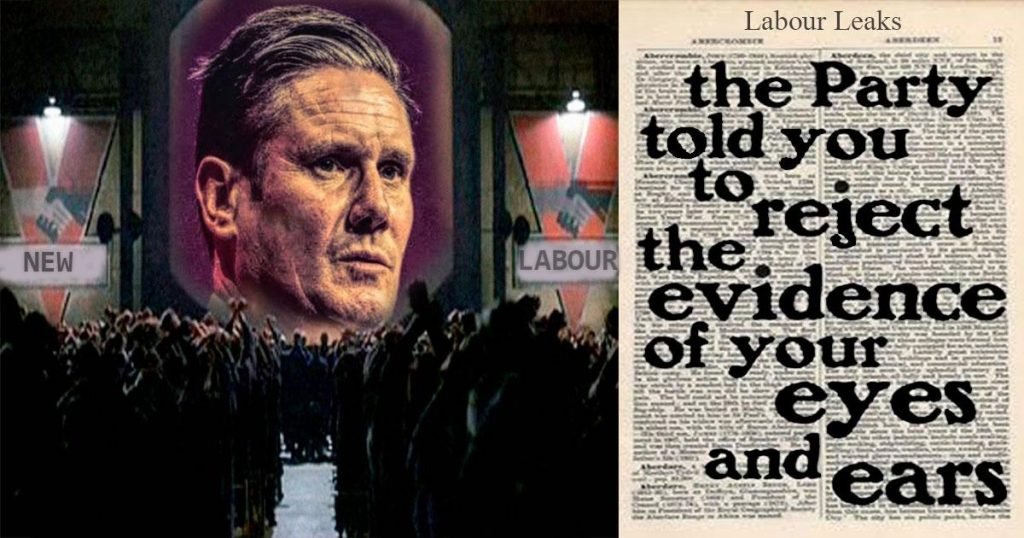
The precedent being set is dangerous, and history shows us exactly where this leads. If the state can justify monitoring people’s political speech on immigration, what prevents expansion to other “sensitive” topics? Climate policy? Economic criticism? Healthcare reform?
We’ve seen this playbook before. The same Labour right that’s now in government spent years perfecting surveillance techniques on their own party members. During Corbyn’s leadership, they created the “Labour Together” app and other digital tools to monitor, track, and undermine socialist activists within the party. They compiled databases of left-wing members, tracked their social media, and used this intelligence to orchestrate purges and suspensions.
But this goes deeper than party politics. Look at how anti-terrorism legislation, introduced after 9/11 to target genuine security threats, was soon being used against protesters, journalists, and civil rights activists. The Regulation of Investigatory Powers Act 2000 was meant for serious criminals, yet councils used it to spy on families suspected of lying about school catchment areas. The Prevention of Terrorism Act powers, designed for IRA bombers, were deployed against peaceful environmental protesters and anti-war demonstrators.
And we’re already seeing the mission creep. Any criticism of Israel’s actions in Gaza has been reframed as potential antisemitism requiring investigation. Trade unionists supporting Palestinian solidarity have found themselves under scrutiny. MPs calling for ceasefires have been suspended. The surveillance state doesn’t just target the “far right”, it targets anyone who challenges establishment power.
Once the surveillance infrastructure exists, its scope inevitably expands. Today it’s “anti-migrant posts.” Tomorrow it’s “anti-government sentiment.” Next week it’s “economic sabotage” for criticising austerity, or “public health misinformation” for questioning NHS privatisation. The infrastructure is neutral, but those who control it are not.
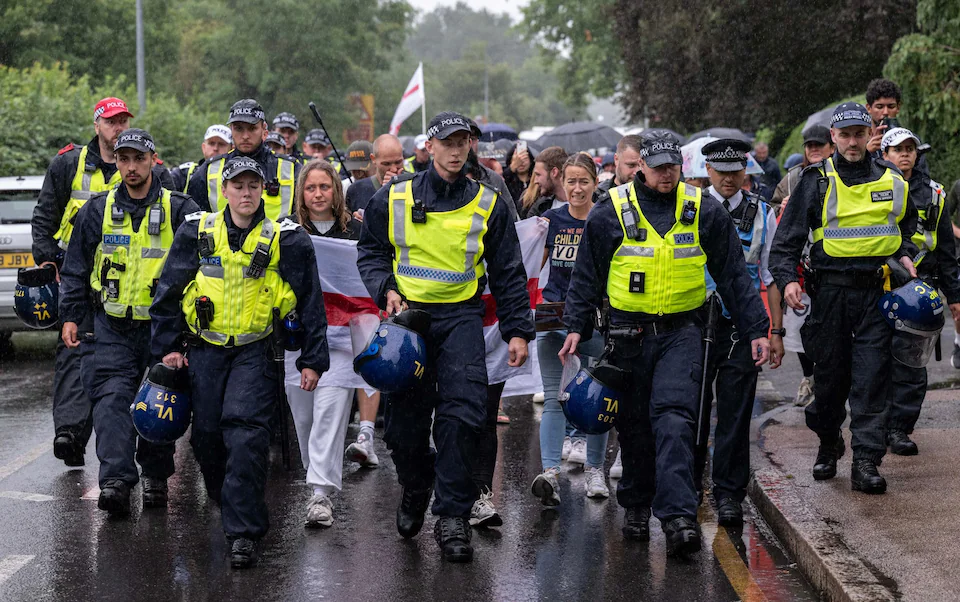
The timing couldn’t be more revealing. Protests are growing. In Norwich, Leeds, Bournemouth and Epping, people are gathering to demand answers. But instead of listening, ministers label them “far-right thugs,” especially when the protests come after incidents like the alleged sexual assault of a young girl.
The immediate catalyst reveals the government’s fundamental misunderstanding of the problem. In Epping, Essex, tensions erupted at the Bell Hotel after an asylum seeker staying there was arrested and charged with the alleged sexual assault of a 14-year-old girl. Local residents, understandably concerned and frustrated, organised protests with chants of “save our kids.”
What started as legitimate community anger quickly escalated. Demonstrators threw projectiles at police, damaged vehicles, and clashed with officers. Similar scenes played out in Norwich, Leeds, and Bournemouth as protests spread across the country.
The government’s takeaway? Not that there might be legitimate community concerns worth addressing, but that online discussion needs monitoring. They’ve diagnosed the symptom, public anger, while studiously ignoring the disease: a demonstrably failing immigration system that has lost public confidence.
This government has lost control of the borders, and now it’s trying to control your thoughts.
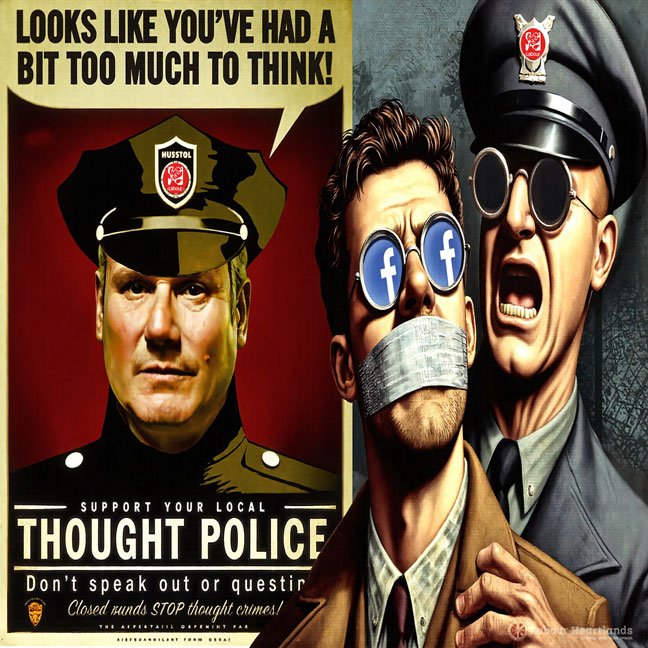
Even Labour’s Angela Rayner saw this one coming, warning the Cabinet that they must address “the real concerns people have” before the situation erupts. But instead of tackling the root causes, housing pressure, public services collapse, job insecurity- they’ve chosen the route of every failing regime: surveillance, censorship, and scapegoating the public.
Let’s lay out the scene: Over a million migrants have arrived in a short space of time. Many undocumented. Some have questionable histories. Most are young, single men. They’re placed in hotels across the UK, while working-class Brits pass them on their way to zero-hours jobs and foodbanks. There’s no transparency. No plan. Just a stubborn refusal to acknowledge what’s plain to see.
The Numbers Behind the Anger
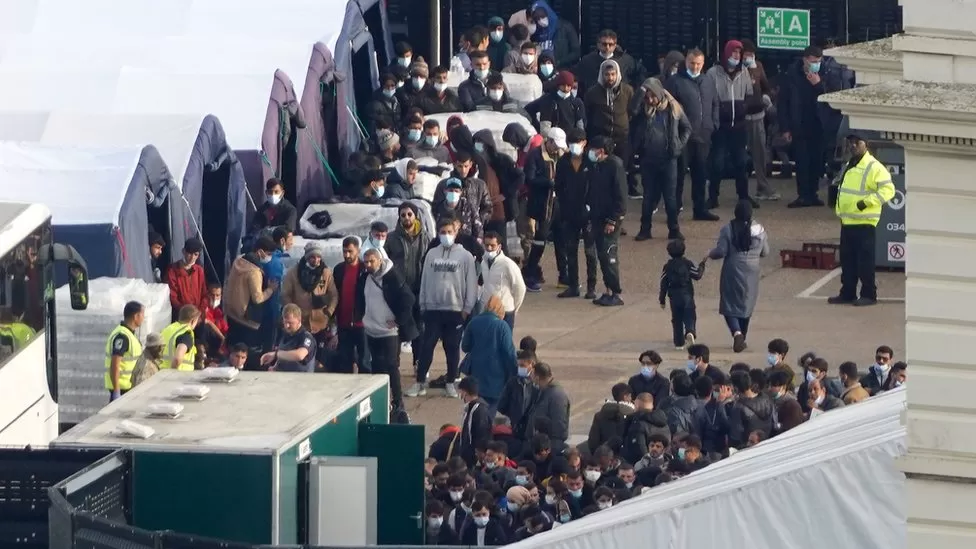
The public’s concerns aren’t fabricated by “far-right agitators,” as ministers prefer to claim. They’re rooted in observable reality:
- Net migration hit 431,000 in 2024 – down from a staggering peak of 860,000 the previous year, but still historically unprecedented
- A record 108,000 asylum applications were received in 2024, with 37,000 people arriving via small boats across the English Channel
- Over 32,000 asylum seekers are housed in approximately 210 hotels across the country, accommodation that costs the public seven times more than alternatives
When working-class families struggling with housing costs and stretched public services see young men housed in hotels at public expense, it’s hardly surprising that questions arise. When those questions are met with surveillance rather than answers, resentment deepens.
And if you object? You’re branded a bigot. A fascist. A “threat to national security.”
No wonder people are angry. But instead of restoring trust, the government doubles down. It pours resources into a glorified Ministry of Truth, run out of the same coordination centre that enforced lockdowns under Operation Talla. You remember curfews, patrols, arrests for walking in the park. That same top-down control is now being turned against anyone who questions immigration policy.
Even the Home Affairs Committee and His Majesty’s Inspectorate of Constabulary are being wheeled out to rubber-stamp the operation, because nothing says democracy like unelected bureaucrats giving the green light to surveillance squads.
Policing Minister Dame Diana Johnson’s letter to MPs makes it sound clinical and harmless: “a national capability to monitor social media intelligence.” Sounds like something out of a GCHQ white paper. But we know what it really means. Every meme, every tweet, every Facebook post that doesn’t toe the government’s line will be watched, noted, and possibly used against you.
Legal Foundations Built on Sand
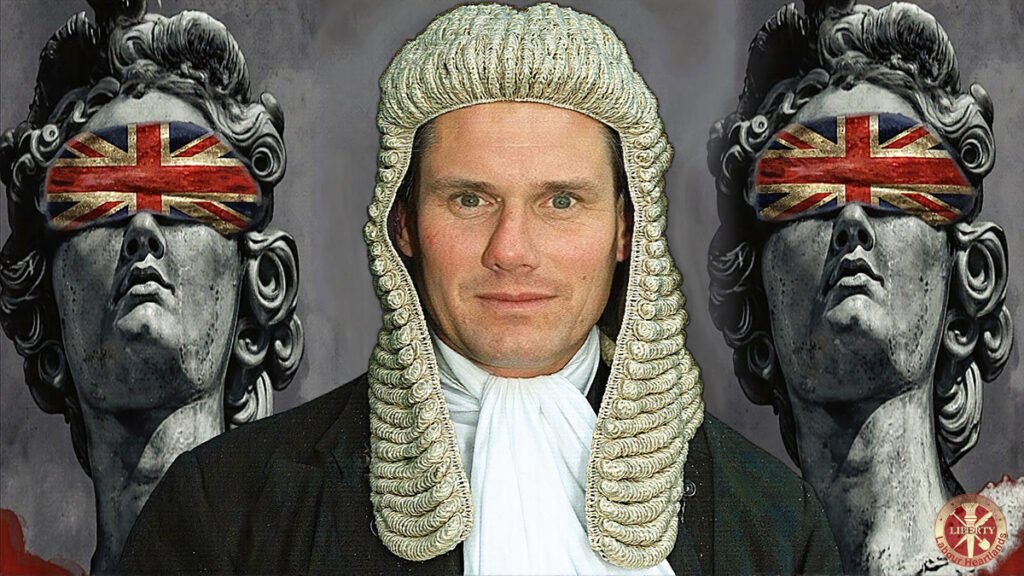
The NIII team’s legal basis is, at best, shaky. It appears to operate under general common law police powers rather than explicit statutory authority, a precarious foundation for such extensive surveillance capabilities.
UK and European courts have consistently ruled that interference with fundamental rights must be “prescribed by law” with adequate accessibility and foreseeability. A national-level, technology-driven surveillance operation targeting political speech demands precise legislative authorisation from Parliament, not vague common law justifications.
The human rights implications are serious:
Freedom of Expression: Monitoring all “anti-migrant posts” sweeps up vast amounts of lawful political debate alongside potentially problematic content. A proportionate approach would target specific, credible threats of violence, not entire categories of political thought.
Privacy Rights: Even publicly available information engages privacy rights when systematically collected and processed by the state. The European Court of Human Rights has established that bulk surveillance requires robust safeguards, protections the NIII team appears to lack.
By focusing on “public” posts, the government exploits what critics call the “OSINT Gap”, a legal loophole allowing warrantless mass collection of publicly available data. But there’s a world of difference between a police officer observing a public square and a national AI-assisted unit systematically monitoring millions of people’s political speech.
The Chilling Effect
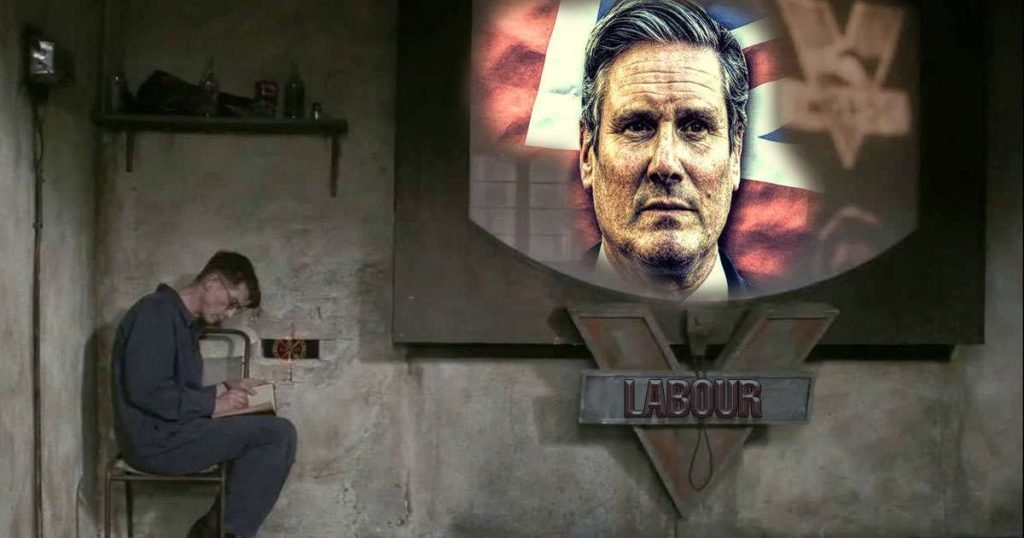
Beyond legal concerns lies a more insidious problem: the chilling effect on democratic discourse. People worried about immigration’s impact on local services, cultural change, or asylum system fairness, all legitimate topics for democratic debate, now face an uncomfortable question: Will voicing these concerns online put them on a police watchlist?
This uncertainty inevitably leads to self-censorship, impoverishing public debate precisely when open discussion is most needed. Even worse, it drives legitimate concerns underground into encrypted channels, making genuine extremist threats harder to detect and undermining the very public safety the policy claims to protect.
Meanwhile, a Home Office spokesman said with a straight face:
“This new team will help police forces track real-time information and protect communities from incidents and emergencies before they escalate.”
Protect communities? From what, people expressing legitimate concerns?
They say they’re focused on “halving knife crime and violence against women,” but the truth is, they’re more interested in silencing mums with placards than criminals with machetes.
And what does the opposition say? Chris Philp, Shadow Home Secretary, accused the government of trying to police “what you post, what you share, what you think.” He’s not wrong. Labour has stopped pretending to fix Britain. Now they’re trying to mute it.
This is where Orwell’s dystopia starts, not with jackboots on the doorstep, but with soft-pedalled digital repression. All under the banner of “safety” and “community protection.”
Free speech isn’t free if it only covers government-approved opinions.
Betraying Labour’s Legacy
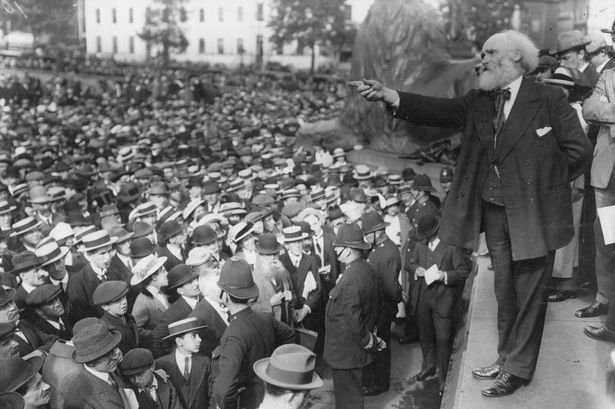
This represents the final betrayal of everything Labour once stood for. This is the party of Keir Hardie, who fought for working people’s right to organise and speak out. The party of Aneurin Bevan, who believed democracy meant the right to disagree. The party that once understood that when working-class communities raise concerns, you listen, you don’t spy on them.
But Starmer’s Labour has shown its true colours. Whether it’s purging socialists from the party, suspending MPs over Gaza, or now monitoring citizens’ social media, this government’s instinct is always the same: control, not convince.
The NIII team represents more than bad policy, it’s symptomatic of a government that has given up on persuasion and turned to control. Instead of winning the argument, they’re trying to silence it. Instead of fixing the problems, they’re policing the symptoms.
But here’s the cruel irony: this surveillance state approach will achieve the exact opposite of its stated aims. Far from controlling the growing far right, it will supercharge their recruitment. Nothing validates extremist narratives about an authoritarian establishment quite like… an authoritarian establishment monitoring citizens’ political opinions. Every parent flagged for questioning immigration policy, every worker surveilled for expressing legitimate concerns, becomes another potential recruit for genuinely radical movements.
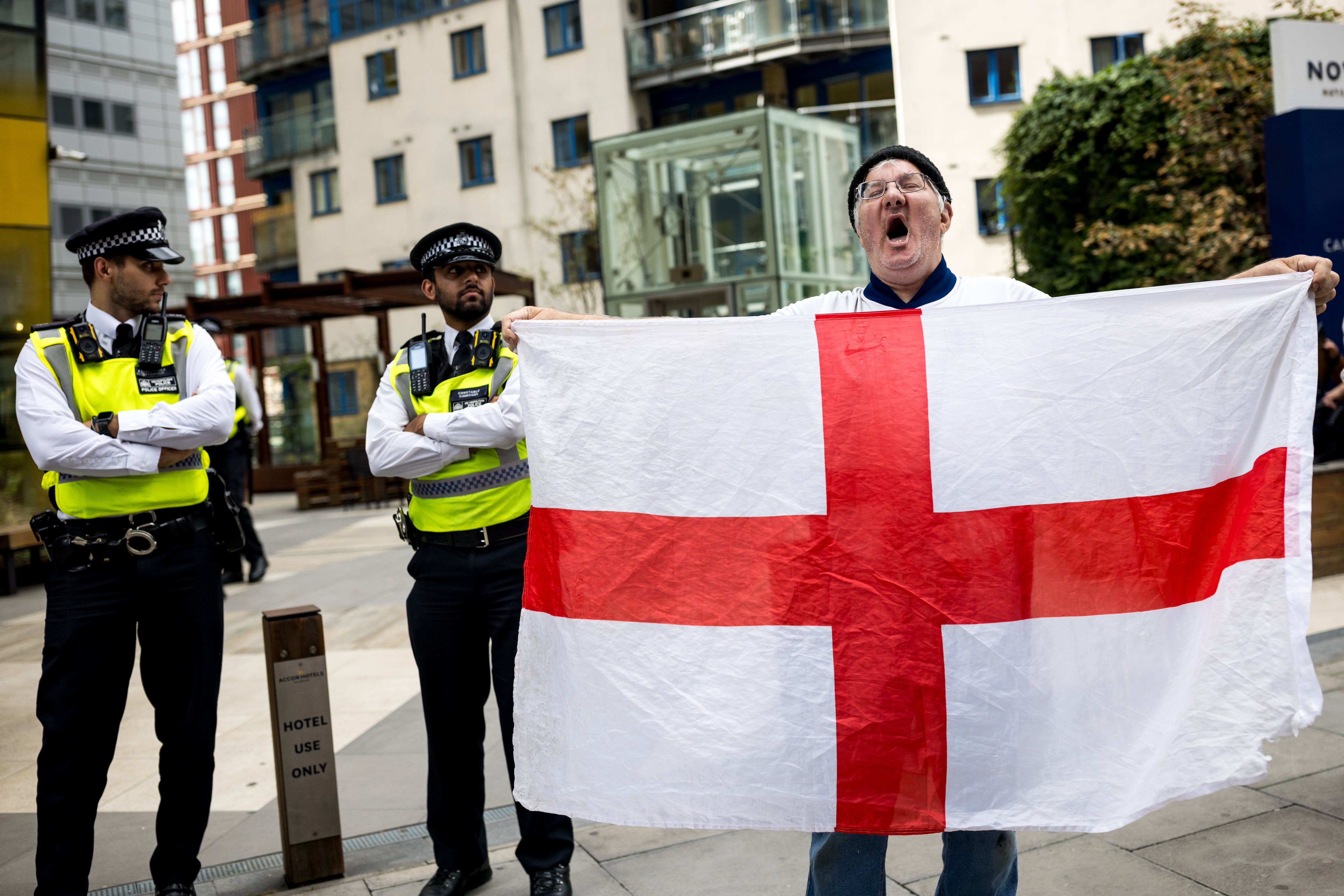
You can almost see the cynical calculation at work. Create a policy so heavy-handed it provokes the very backlash it claims to prevent, then use that backlash to justify even more draconian measures. It’s the classic authoritarian playbook: manufacture a crisis, then present yourself as the only solution, even if that solution involves surrendering more of our freedoms.
This is disaster capitalism applied to civil liberties. Let tensions simmer, let surveillance breed resentment, let legitimate concerns fester in the shadows until they explode into something genuinely dangerous, then swoop in with emergency powers that would never have been acceptable in calmer times. The government isn’t trying to prevent extremism; it’s cultivating the conditions that create it, all while positioning itself as the indispensable guardian against the chaos it helped create.
In modern Britain, it seems the only border being effectively enforced is the one around acceptable opinion. And that’s a boundary no democratic government should be drawing.
The public doesn’t need their minds policed, they need their streets made safe, their wages raised, and their housing crisis addressed. But instead of confronting the mess they’ve created, this government would rather criminalise those who notice it.
Because in modern Britain, it’s not the border that gets enforced, it’s the narrative.
Support Independent Journalism Today
Our unwavering dedication is to provide you with unbiased news, diverse perspectives, and insightful opinions. We're on a mission to ensure that those in positions of power are held accountable for their actions, but we can't do it alone. Labour Heartlands is primarily funded by me, Paul Knaggs, and by the generous contributions of readers like you. Your donations keep us going and help us uphold the principles of independent journalism. Join us in our quest for truth, transparency, and accountability – donate today and be a part of our mission!
Like everyone else, we're facing challenges, and we need your help to stay online and continue providing crucial journalism. Every contribution, no matter how small, goes a long way in helping us thrive. By becoming one of our donors, you become a vital part of our mission to uncover the truth and uphold the values of democracy.
While we maintain our independence from political affiliations, we stand united against corruption, injustice, and the erosion of free speech, truth, and democracy. We believe in the power of accurate information in a democracy, and we consider facts non-negotiable.
Your support, no matter the amount, can make a significant impact. Together, we can make a difference and continue our journey toward a more informed and just society.
Thank you for supporting Labour Heartlands
